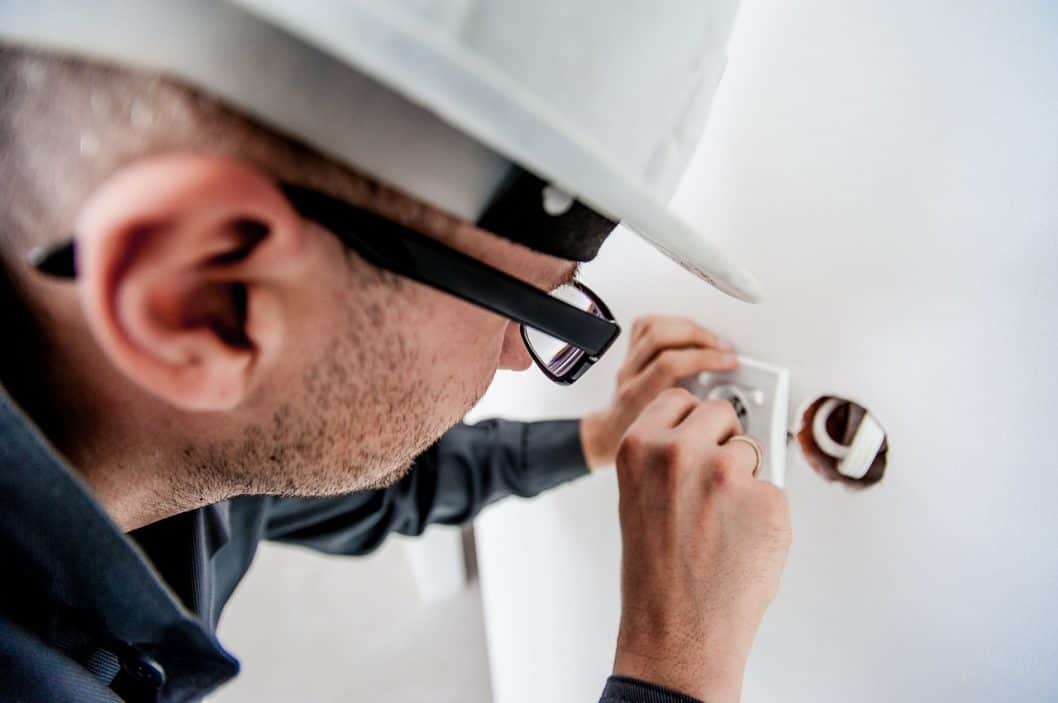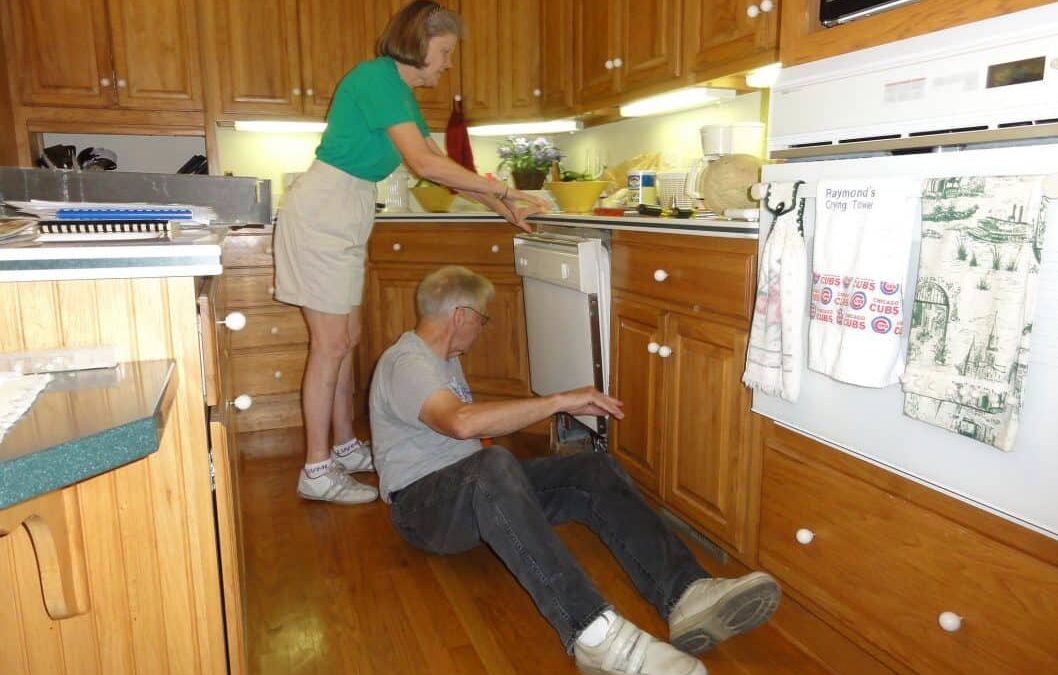There are many jobs available in the technical field, all of which have distinct advantages and disadvantages. One of these jobs is that of an appliance repair technician. This job requires having a special combination of mental and physical aptitudes as well as interpersonal and administrative skills. Such a combination, with the right training, provides access to a job that is interesting, challenging, and rewarding. There are a lot of factors to consider when contemplating whether to enter upon a career in appliance repair.
What Is Appliance Repair?

Image from Pixabay
Appliance repair includes the repair, servicing, installation, and inspection of many household appliances. These can include smaller appliances like dishwashers, oven ranges, washers, and dryers. It can also include larger appliances such as refrigerators. This job also requires the ability to connect and maintain water and gas lines and the ability to repair leaks if they are found.
Job Description
There are many general duties involved in this job description, such as reinstalling and cleaning parts, diagnosing and repairing appliances, and reassembling units after repair. Any technician will need to have both technical and problem-solving skills as well as dexterity and a knowledge of appliance systems in order to be successful.
Technical Skills
An appliance repair technician must first have the basic knowledge and abilities needed to complete assignments successfully. This field requires a lot of hands-on work. All technicians should be able to complete the following:
- Test electrical components or circuits for proper functioning
- Replace defective and worn parts such as transmissions, switches, belts, bearings, defective wiring, transmissions, gears, or circuit boards
- Level machines or equipment
- Connect hoses to piping or equipment
- Install piping for maintenance or installation activities
- Use hand tools, power tools, or heavy equipment to position equipment
Depending on the appliance, the duties of a technician may vary. Though technical skills and knowledge are important, a skilled repair technician will also have a variety of impersonal skills and analytical capabilities.
Troubleshooting
A large part of a repair technician’s job requires the ability to diagnose and plan solutions to problems. Because so much of the job involves finding what repairs are required to fix an appliance, a technician must be able to gather information from all relevant sources, identify the underlying cause or reason for a defect, and develop long-range objectives and a course of action to repair the issue.
Interpersonal Skills
Most of the work of an appliance repair technician will deal directly with clients and the general public through a contract with an organization. Some interactions may include:
- Selling or convincing others to buy appliances
- Communicating with persons outside of the organization
- Promoting the organization to the public
- Providing personal care or help to others
- Developing cooperative working relationships with others
- Educating clients on equipment maintenance
It is important for the technician to have strong interpersonal skills to maintain good relationships with supervisors, coworkers, and clients.
Administrative Duties
An appliance repair technician must also perform many duties on the administrative side of the business. Many times, an experienced technician will be in charge of controlling and monitoring resources, including finances, and performing inventory management. A technician will also ensure that all processes and solutions comply with laws, regulations, and standards. Many times, the appliance repair technician will document and record information and transactions, whether in electronic or written form.All in all, an appliance repairer needs to have a good combination of technical, interpersonal, and administrative skills in order to be truly successful and to maximize the possible financial benefits of the job.
Types of Jobs

Image from Pixabay
There are a variety of specialties and fields within the appliance repair industry. Depending on the education, certification, and experience of a technician, they may qualify to move from one field to another. Appliance technicians can work in or with:
- Appliance and Electronics Stores
- Building Equipment Contractors
- Natural Gas Distribution
- Personal and Household Goods Repair and Maintenance
These are just some areas that require appliance repair and skilled technicians to carry out those repairs. One of the major advantages of this industry is the room for growth and variety in choosing employment. Some technicians get hired under companies or organizations and complete assignments. Others may choose to become independent contractors, servicing clients whether stores, at job sites, or in homes.
How to Become an Appliance Repair Technician

Image from Pixabay
Depending on the type of job, the income for an appliance repair technician can vary. This may lead to several questions as to expected salary, education requirements, and certification requirements.
What Education Is Required?
Typically, only a high school education is needed in order to become an entry-level appliance repair technician. However, there are a variety of other options offered for those looking to begin a career in this field.One option is an apprenticeship program. There are several avenues to complete apprenticeship programs. One avenue is to work under the direct supervision of a trained technician. Some appliance manufacturers may offer training seminars that will equip each person with the ability to complete all tasks required. Employers may also provide courses where trainees can learn and sharpen their craft. Often, an apprenticeship may be all that is required for small appliance repair.Another option is to complete more formal training. In order to do this, prospective technicians need to enroll in vocational or technical programs that focus on electronics courses. By means of this more formal training, technicians can reduce the amount of on-the-job training required and enter the workforce sooner than they would otherwise be able to. Through this training, they can also more quickly obtain the certifications needed to become an appliance repair technician depending on what specialty they choose.No matter which avenue they choose, all technicians need to continue their training and education throughout their career to remain successful as new technology is developed and industry laws, regulations, and standards continue to change.
What Certifications Are Needed?
Generally, certifications are not required in order to become an appliance technician. However, depending on the specialty chosen- such as refrigeration and cooling- some technicians may require certification to be employed in their field. These certifications can only be earned after graduating from an electronics program and gaining an adequate amount of on-the-job training. There are several certifications that can be obtained through official government agencies or organizations, such as the:
- U.S. Environmental Protection Agency (EPA)
- Certified Appliance Professional (CAP)
- International Society of Certified Electronics Technicians (ISCET)
By gaining certification from the U.S. Environmental Protection Agency, technicians can legally and safely specialize in working with major appliances. Through this agency, they will gain a Section 608 Technician Certification, which allows them to work on all types of appliances.The Certified Appliance Professional (CAP) program allows technicians to certify their skills as either a Certified Technician or a Master Technician. This certification is maintained by the National Coalition of Electronics Education (NCEE) Graduate Technician program, which measures the skills of graduating technicians against set industry standards and qualifies them to enter the work force as an entry-level technician.After two years of being an employed Certified Technician, the appliance repair technician can become a Master Technician at the recommendation of their employer, therefore qualifying for higher-paying jobs.The International Society of Certified Electronics Technicians (ISCET) is a nonprofit society that provides administration, scoring and analysis of NASTeC exams. NASTec is a national certification program for technicians who service major home appliances. It measures the skills, ability, and knowledge that technicians will need to use daily to complete their job successfully. This exam is the highest level of professional recognition in the appliance service industry. By offering exams in numerous fields, such as industrial electronics and consumer electronics, the ISCET serves a critical need in both the service industry and the appliance repair industry.
What Is an Appliance Repair Technician’s Salary?
According the US Bureau of Labor Statistics (BLS), in May 2015 an appliance repair technician was projected to make anywhere from $10.41 per hour to $29.19 per hour. This adds up to a median annual salary of $36,200. Wages vary depending on type of equipment repaired, location, and the skill level of technicians. It also depends on the type of technician: for example, natural gas distribution and wholesale electronic brokers and markets were the top-paying industries.
Job Outlook and Prospects
The U.S. Bureau of Labor Statistics predicts a decrease of 3% in employment opportunities for appliance repair technicians over the decade-long span of 2014-2024. This adds up to a total loss of 1,600 jobs. However, an increase in the average pay is projected along with the decrease in jobs, making this a worthwhile industry to consider.
Conclusion
The appliance repair industry offers many things worth looking forward to. It is a well-paying industry that offers variety, flexibility, and growth. It also includes such practical advantages as the possibility of certification and promotion. Whether you go through an apprenticeship or undergo more formal training, there is always opportunity for employment and potential for advancement.
Featured Image by Bart Everson from Flickr

